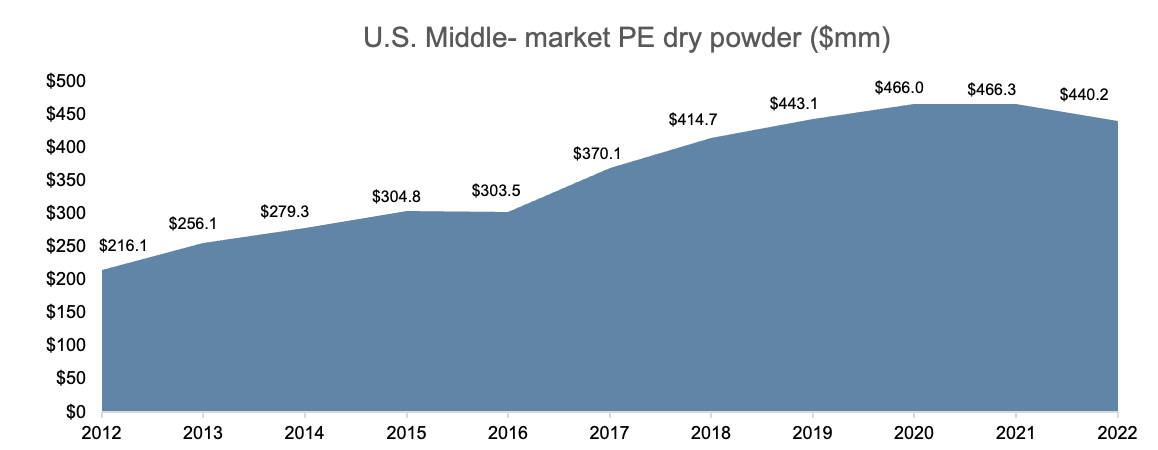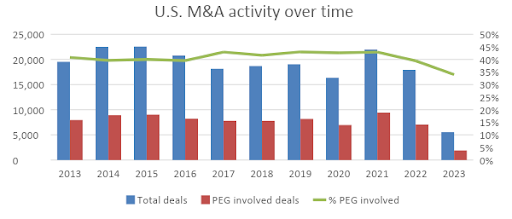“Supply creates its own demand.” – Jean Baptiste Say
Regardless of the veracity of Say’s Law as a broad economic principle, its relevance to the merger and acquisition marketplace is beyond challenge. This principle especially applies to middle-market companies preparing a business for sale. Industry estimates by global research firm Preqin suggest North American private equity firms aggregately have some $1.3 trillion dollars of ‘dry powder’ – that is funds conditionally available to private equity managers to invest (usually) in corporate acquisitions.
While the multi-billion-dollar deals provide the headlines, this money is in large part aimed at middle-market companies:
 Source: Pitchbook
Source: Pitchbook
The result of this supply of dry powder is that regardless of perceived market conditions, there is almost always a market for your business, even if you don’t believe it fits a private equity buyer. First, despite similarities, private equity groups do have different cultures, philosophies, and investment strategies;
they should not be painted with the same brush. Second, while private equity managers typically prioritize investing in well-established, often large companies, many will back lower and middle-market companies led by strong teams, when they perceive attractive growth opportunities.
Further, this dry powder – and the consistent private equity buyer interest it generates – also brings ‘strategic’ corporate acquirers to the table. Sophisticated strategic buyers know that if they choose not to pursue an opportunity, private equity often will. This can be undesirable for several reasons:
- Only some targets fit any specific strategic buyer. So an actionable acquisition opportunity has scarcity value to strategic buyers in a way that it would not for private equity buyers;
- If private equity acquires a particular company, the strategic buyer may never have the opportunity to pursue that target again even though private equity buyers sell their portfolio companies periodically. Usually, the target that comes back to market will be larger, and much more expensive; and
- Strategic buyers have learned that if private equity acquires a potential target that they compete with, that company often will receive significant investment aimed at honing it into a more formidable competitor.
In short, for strategic buyers, buying something logical at a challenging time is often a better strategy than losing market share or being forced into a much more expensive defensive acquisition down the road. Accordingly, despite the vicissitudes of the M&A marketplace, when the opportunities present themselves – corporate buyers also stay active in the market:

Source: S&P CapIQ analysis
As can be seen above, private equity is typically involved in around 40% of transactions, across many market cycles. They – supported by their dry powder – in essence, underpin the liquidity of the M&A marketplace.
In short, regardless of the perceived external environment, for business owners, the message remains the same: the buyers are, and almost certainly will be, there. More than timing or market conditions, an important factor in preparing your business for sale is to work with an experienced M&A business advisor who will actively help you ready your business for sale, and when the time is right for you, generate the best alternatives and value for your company.

